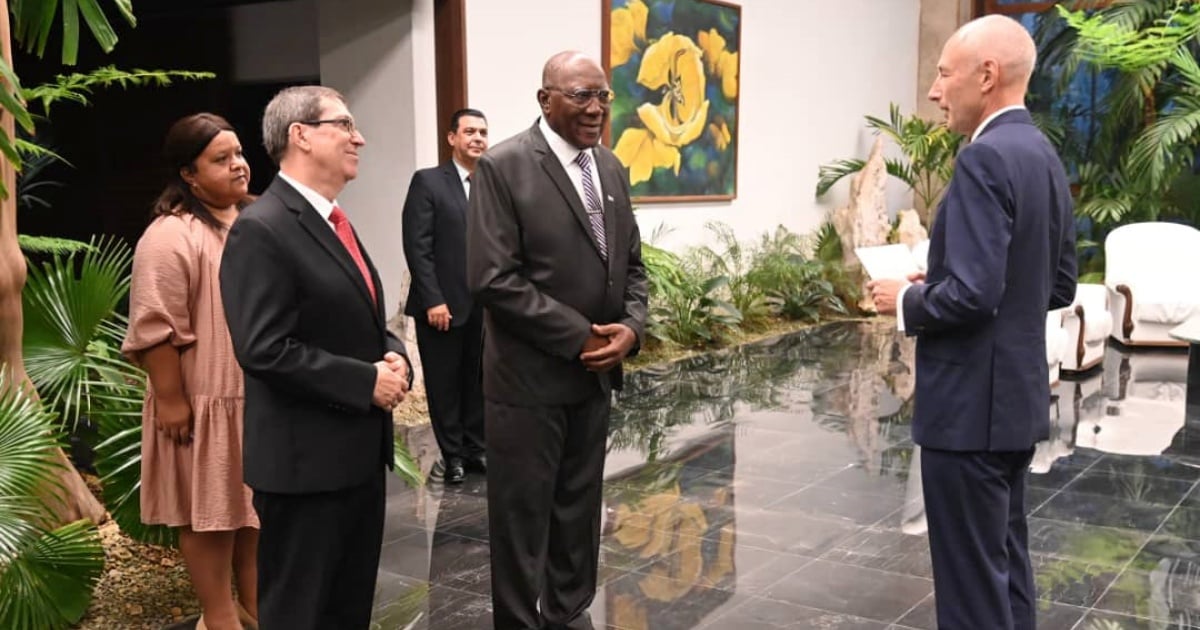This Tuesday, the Dutch Embassy in Havana announced via social media its impending closure. The embassy clarified that on April 17, the Dutch Council of Ministers endorsed a proposal to revise their global diplomatic network, prompted by forthcoming budget cuts and a drive for a more efficient and responsive network.
The embassy's statement mentioned, "The decision encompasses plans to shut down five embassies and two consulates general. The Havana location is among the embassies scheduled for closure. We anticipate receiving further instructions in the upcoming months regarding the closure date."
Despite the closure announcement, the European diplomatic mission assured that it will continue its operations, including consular services, "until further notice." Any changes in the services will be communicated once finalized.
The current ambassador had only recently, in September 2024, presented his credentials to Vice President Salvador Mesa and Foreign Minister Bruno Rodríguez.
Diplomatic Presence Reduction
The embassies marked for closure are in Bujumbura (Burundi), Havana (Cuba), Juba (South Sudan), Tripoli (Libya), and Yangon (Myanmar), alongside two consulates general in Antwerp (Belgium) and Rio de Janeiro (Brazil).
Last week, it was reported that the Dutch Minister of Foreign Affairs, Caspar Veldkamp, had formally suggested to the President of the Dutch House of Representatives the closure of the Dutch Embassy in Havana and other locations as part of budget reduction strategies.
This move is part of a broader initiative to cut embassy, consulate general, and other representation budgets by 10%. Additionally, there are plans for a subsequent phase that might involve closing four more offices based on geopolitical and economic considerations.
Veldkamp noted that while some diplomatic missions will be shuttered, new representations may open, such as in Syria, depending on the country's evolving situation.
The decision-making process took into account various factors, including Dutch interests in each country, available "room for maneuver," and operational costs. Specifically, the effectiveness of maintaining diplomatic efforts in Havana, Yangon, and Tripoli was scrutinized.
Evaluations included bilateral relations, security, trade, international development, consular services, and the missions' unique characteristics.
The plan is projected to yield structural savings of approximately 25 million euros. Concurrently, there are considerations to downsize personnel in other embassies and consulates to safeguard Dutch interests under austerity measures.
Uncomfortable Presence for the Cuban Government
In recent years, the Dutch Embassy had been notably active in fostering civil society in Cuba, supporting activists, independent journalists, and dissident artistic initiatives.
The embassy has funded exhibitions, theater productions, conferences, and films, particularly through the Go Cuba Cinema program. Moreover, it has supported projects focusing on issues such as gender violence, circular agriculture, water, cycling, music, ecology, and literature.
Implications of the Dutch Embassy Closure in Havana
Why is the Dutch Embassy in Havana closing?
The closure is part of a larger plan by the Netherlands to reduce diplomatic spending by 10% and streamline their global network, influenced by budget cuts and a need for more agile operations.
What activities has the Dutch Embassy supported in Cuba?
The embassy has actively promoted civil society by funding cultural and artistic projects, supporting independent journalists, and backing initiatives on gender violence, agriculture, and ecology.
What countries are affected by the Netherlands' diplomatic closures?
The embassies in Bujumbura, Havana, Juba, Tripoli, and Yangon are affected, along with consulates general in Antwerp and Rio de Janeiro.
